West rebukes Kosovo for escalating tensions as clashes erupt between Serbs, police
Police in northern Kosovo fired tear gas to disperse ethnic Serb protestors who had gathered to oppose the installation of ethnic Albanian mayors, a decision that drew sharp condemnation from the United States and European powers.
The ethnic crowd, gathering outside the mayor’s office, had been trying to prevent a newly-elected mayor from entering his office, after a vote in April was boycotted by the Kosovo Serb majority in four northern municipalities near the border with Serbia.
Clashes erupted between Serb residents and police officers after the officers started a crackdown against the protesting crowd.
At least 10 people were injured “from shock bombs and tear gas, and also visible facial injuries” and were driven away with ambulances arriving at the scene, Danica Radomirovic, deputy head of the local hospital, told local media.
Five police officers sustained slight injuries from “heavy objects and shock bombs” that were thrown in their direction, Kosovo police said.
“Material damage was also caused to four official vehicles. One of them was set on fire… Gunshots were also heard nearby,” it added.
Serbian state-run broadcaster RTS reported that Kosovo police also used tear gas in the Zubin Potok and Leposavic municipalities.
After the ethnic Serbs of Kosovo boycotted elections in the northern regions in April, it enabled Albanians to win positions and take control of the local councils, even though the voter turnout was as low as 3.5 percent.
Meanwhile, Kosovo Prime Minister Albin Kurti went steps ahead and installed mayors, as he ignored the calls made by the European Union and the US, which helped the country in gaining its independence.
The main Serb party from Kosovo threatened of a “decisive response” by the ethnic Serbs if the “repression” by Kurti does not stop.
Serbia, which previously ruled Kosovo until it became independent in 2008, placed its army on high alert and ordered forces toward the border, a step it has taken repeatedly in recent years.
The US, Britain, France, Italy, and Germany in a joint statement rebuked Friday’s Kosovan crackdown and asked Kosovo authorities to step back and de-escalate the situation.
Secretary of State Antony Blinken said that the United States “strongly condemns” Kurti’s move.
“These actions have sharply and unnecessarily escalated tensions, undermining our efforts to help normalize relations between Kosovo and Serbia, and will have consequences for our bilateral relations with Kosovo,” Blinken said in a statement.
The US has been Kosovo’s main supporter politically, militarily and financially ever since it gained its independence from Serbia.
Meanwhile, the ethnic-minority Serbs, which make up 1.5% of the population, do not recognize the 2008 declaration of independence from Serbia, and instead recognize Belgrade as their capital.
Despite months of shuttle diplomacy by EU mediators, in March, Kosovo and Serbia stopped short of signing a potential landmark deal to normalize their relations.
VIDEO | Press TV's news headlines
Israel has slaughtered 13000 students in Gaza, West Bank
VIDEO | More Zionist than Zionists: Biden’s legacy to be defined by Gaza genocide
Hamas confirms handing approval of Gaza ceasefire deal to mediators
VIDEO | Iran: Show of strength
UNRWA will ‘stay, deliver’ aid to Palestinians despite Israel’s ban: Lazzarini
Explainer: What makes Iran's Rezvan and Raad loitering munitions prized assets?
VIDEO | Unseen agony: Missing loved ones of genocide in Gaza


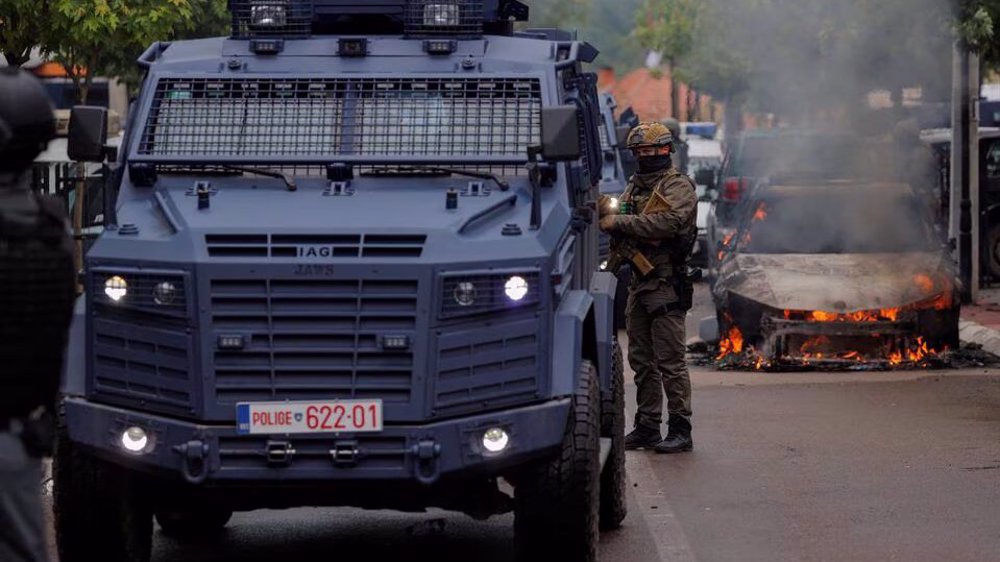

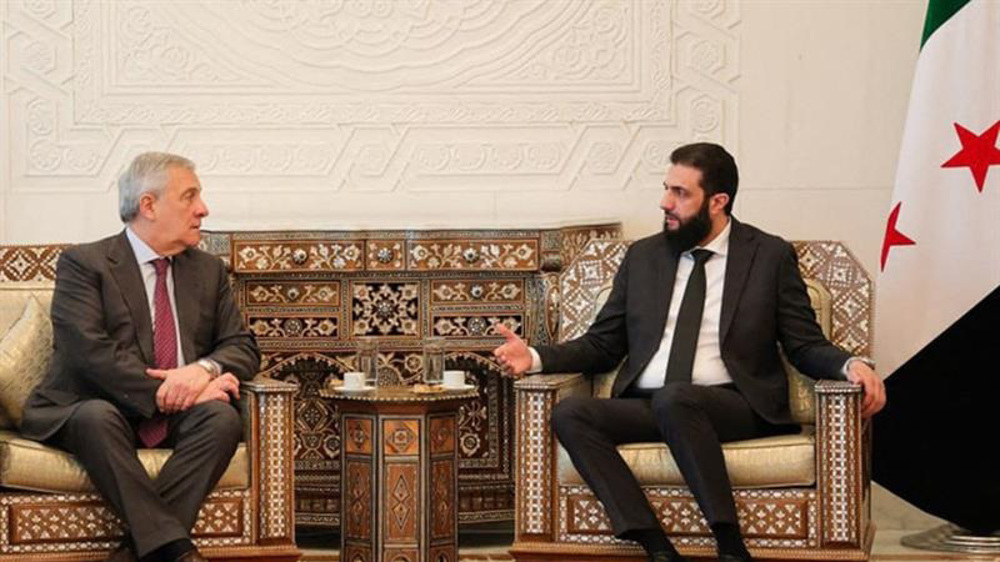
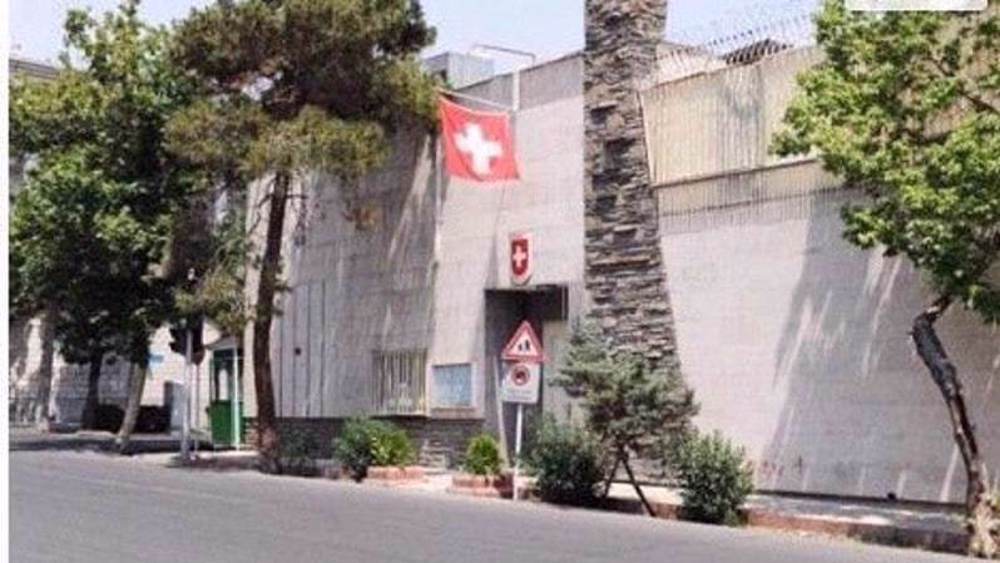



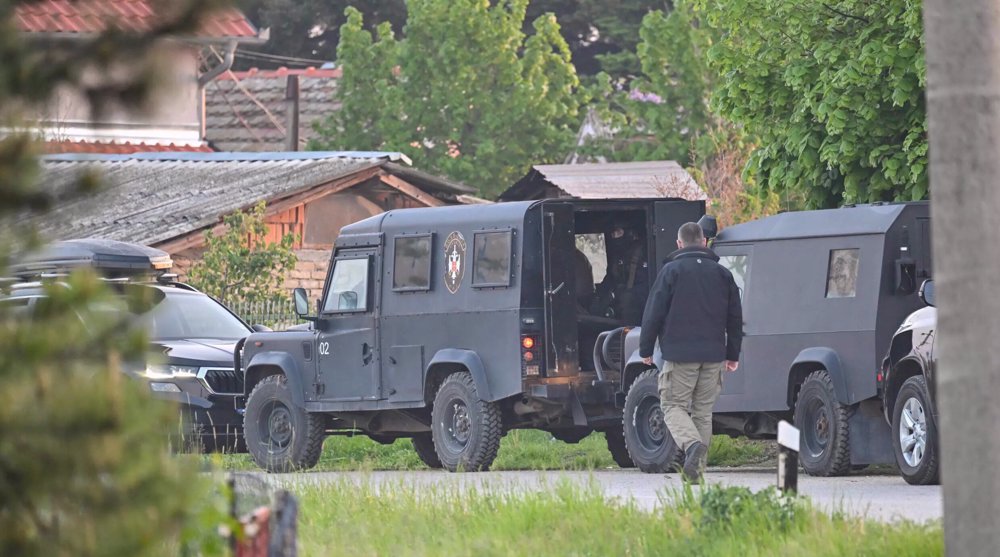
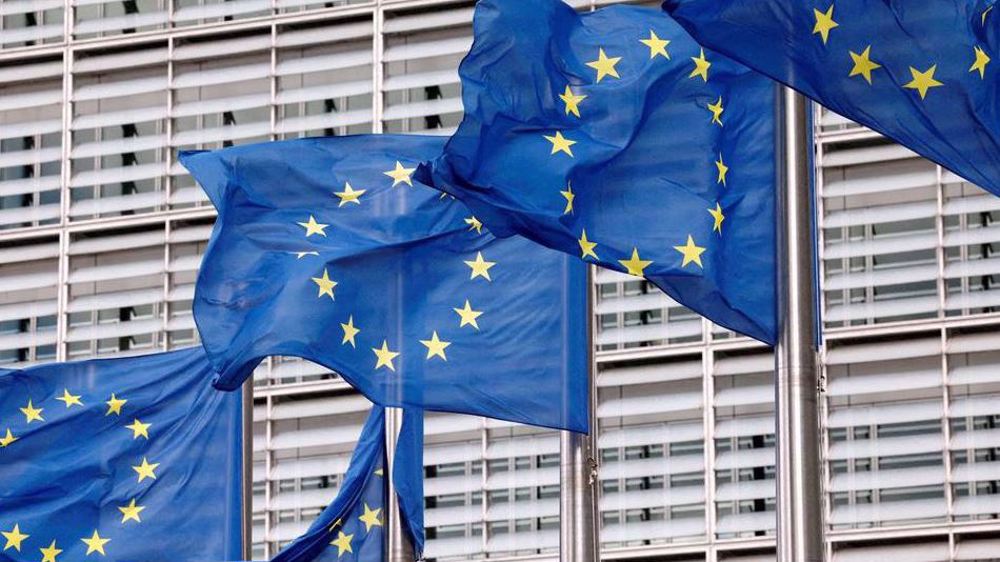
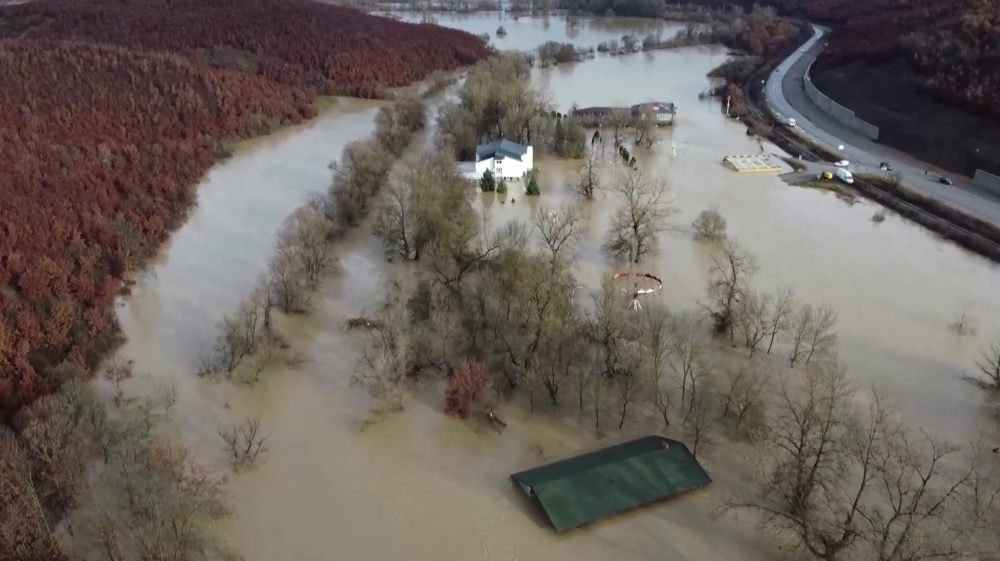
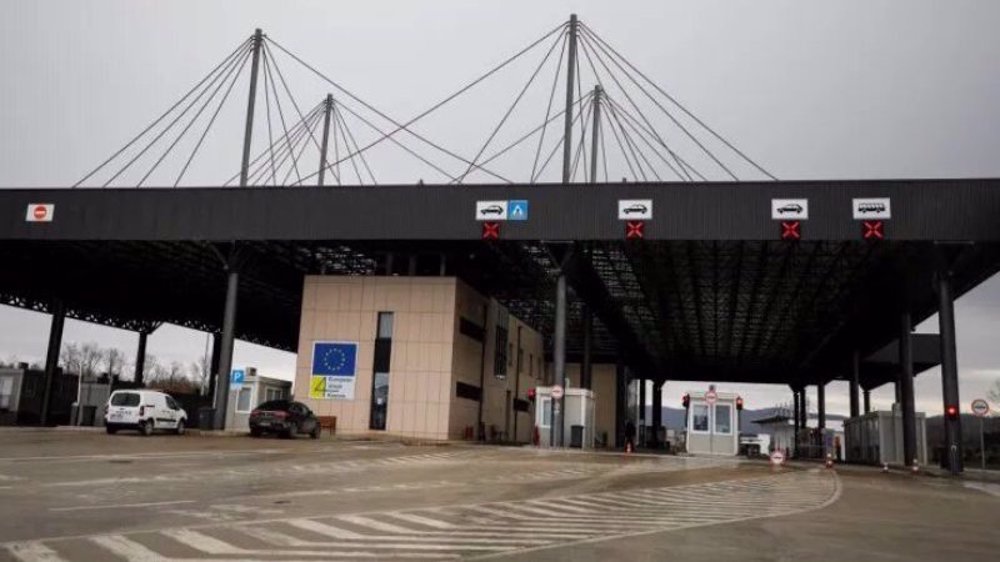
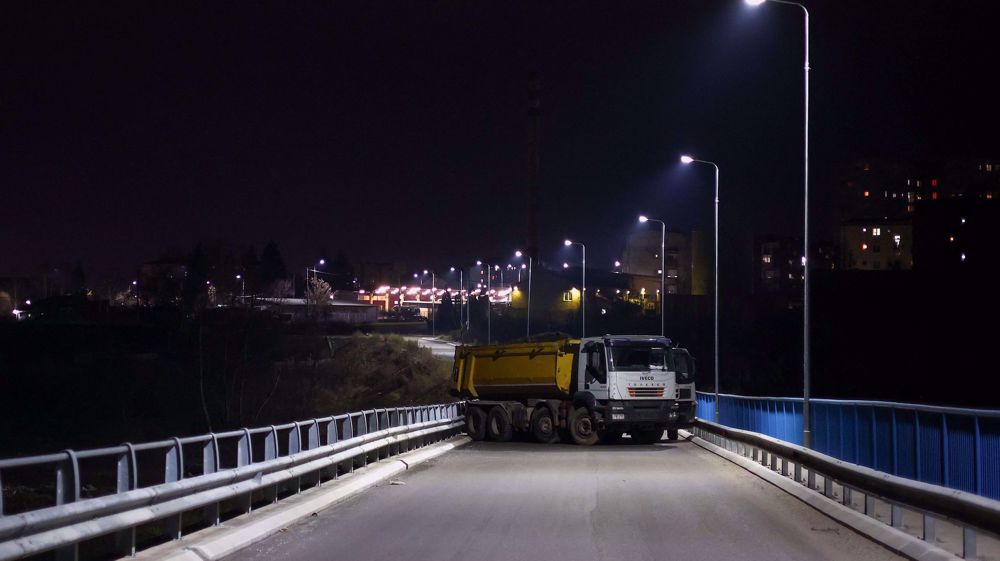
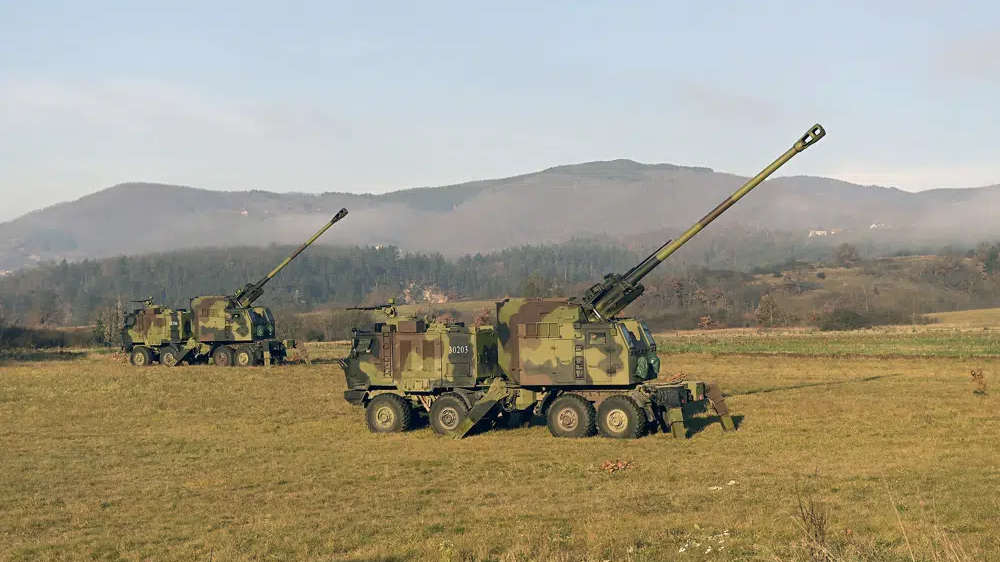
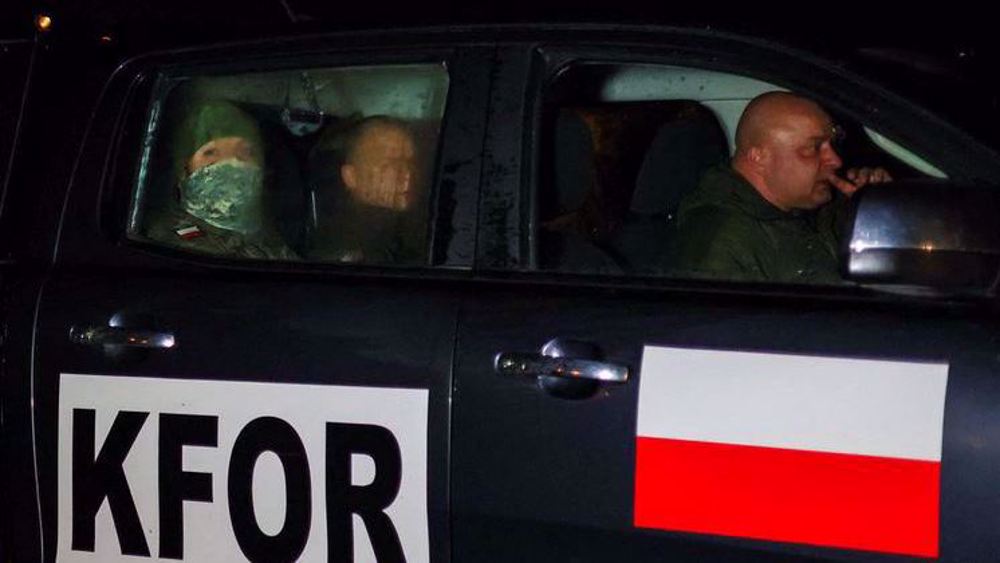
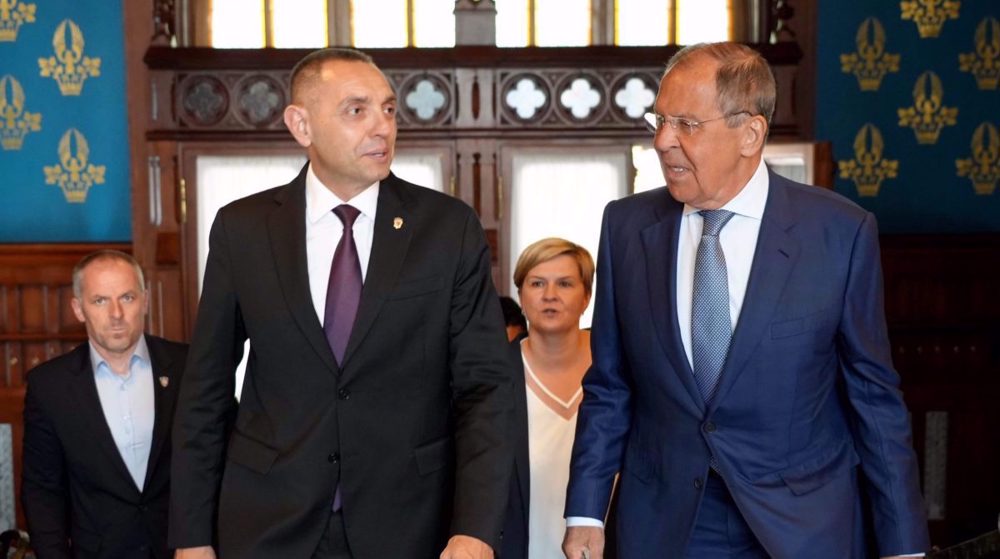

 This makes it easy to access the Press TV website
This makes it easy to access the Press TV website